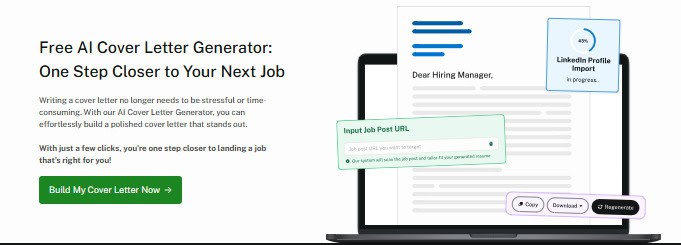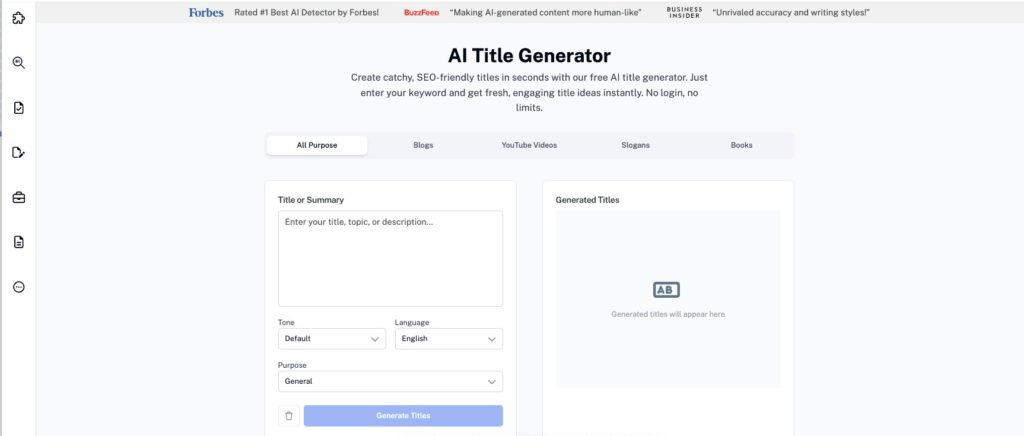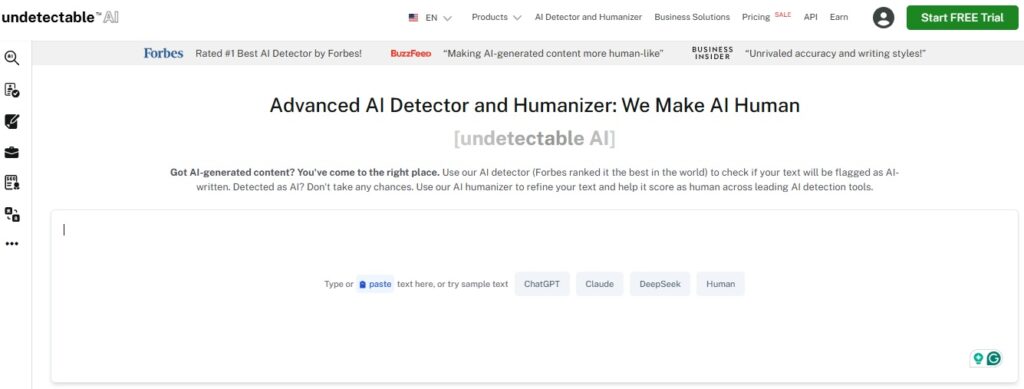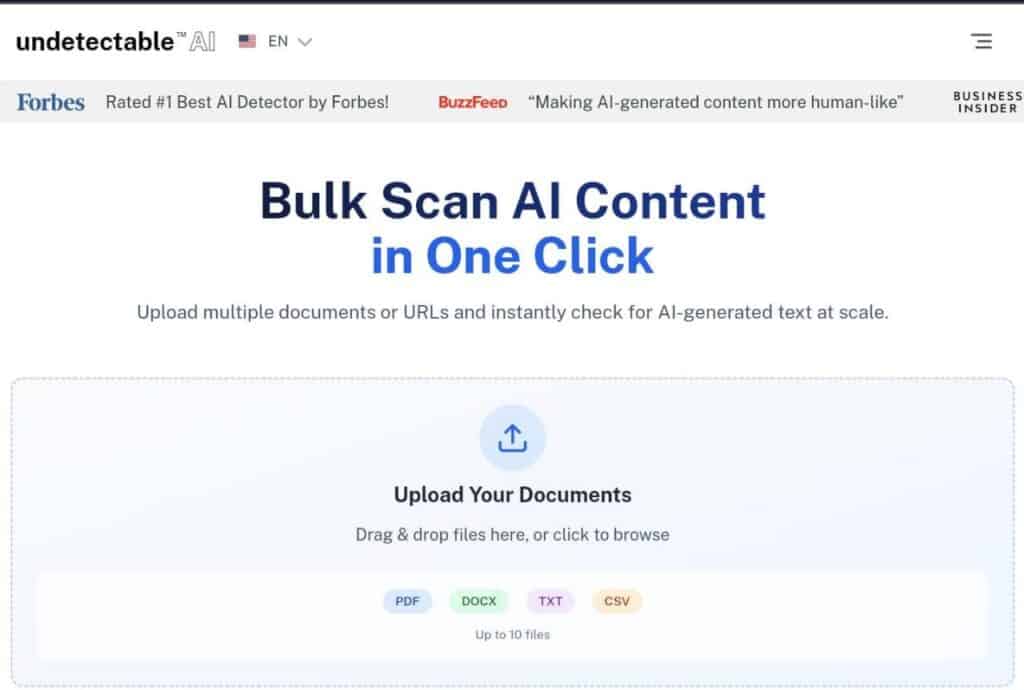Digital applications and ATS systems have changed the job market drastically, and many job seekers face the question of whether cover letters are still relevant.
This is not so black and white; though they are not required to be used in every instance they have the potential to provide tremendous advantage when used at the strategic level in the right setting.
In this part, we will cover when you will need to use cover letters in your hunt for employment opportunities, when you can safely avoid using them, the reality behind how recruiters view the letters, and how to make the best choice regarding your needs and long-term goals.
Key Takeaways
- Cover letters are not always needed but they may give advantages in many cases.
- The cover letter is most useful when it involves making career transitions, competitive jobs, and when you have compelling tales to share.
- A well-written, targeted cover letter wins over a generic cover letter any time.
- There are certain professions and sectors that require cover letters.
- Modern tools can help you create personalized, professional letters efficiently.
Do Cover Letters Still Make a Difference?

In spite of the forecasts of the death of cover letters, they still make a critical difference.
According to recent surveys, 83% of hiring managers read cover letters when they are present, and 94% of them use cover letters either in making their judgment or helping to shape their judgment.
Nevertheless, cover letters have a diverse effect, depending on industry, level of job, and cultural adaptations of the company.


Never Worry About AI Detecting Your Texts Again. Undetectable AI Can Help You:
- Make your AI assisted writing appear human-like.
- Bypass all major AI detection tools with just one click.
- Use AI safely and confidently in school and work.
The trend in technical careers towards skills-based hiring and portfolio reviews has rendered cover letters less significant.
Sample codes, GitHub repositories, and technical tests frequently have higher priority in these sectors compared to written statements of interest and skills.
The opposite is true for areas that need market, PR, Academic, or consulting skills; cover letters are always in high demand.
These industries consider the cover letter itself to be a writing sample, showing communication skills.
How necessary is a cover letter depends mostly on the particular industry.
What A Cover Letter Does
There are a lot of uses that a cover letter can satisfy which could never be achieved through a resume alone.
It provides a context for job moves, explains the gaps in employment and enables you to demonstrate that you have read about the requirements and culture of the company.
Above all, it will enable you to present a narrative that can relate your experience to a particular job.
Cover letters also display your personality and communication style to an extent that can never be expressed by bullet points and job descriptions.
Not only do they show employers that you can compile bits of knowledge and assemble logical arguments, but they also permit you to deliver a message that is topical to a particular group of people.
Writing cover letters specific to each job application may be very hectic and time consuming. But our Cover Letter Generator will help you write personal, professional letters very quickly and effectively.
With the information about the position and your experience, you can create tailored cover letters that communicate relevant needs in the job and still sound like you, eliminating a great deal of stress associated with the application process.

Title Your Applications Like a Pro
Great writing is only half the battle—how you present your application matters too. Use our Undetectable AI’s AI Title Generator to craft clean, professional titles for your cover letters, resumes, and even email subject lines.

Enter the role, team, and timeframe (e.g., “Product Marketing Intern, Summer 2025”) and get polished options that read well in an inbox or ATS. Think:
Software Engineering Intern — Cover Letter — [Your Name]UX Research Intern — Portfolio — Case Studies- Email subject:
Application: Data Analyst Intern — [Your Name]
Small detail, big signal of professionalism.
When a Cover Letter Is Necessary
Here are a few reasons why a cover letter might be necessary:
- Career Changes: You need a cover letter to demonstrate how your transferable expertise applies in new employment or industry. Without such a context, the hiring managers may not appreciate how well your background can match their job requirements. You can communicate why you are coming on board and why your previous experience will introduce a specific value to their team.
- As a Mandatory Document: Skipping this step indicates lack of attention to detail, which is an immediate turn off to most employers. Organizations that require cover letters usually utilize them in their application process, so failing to include one makes your application incomplete and may hurt your chances even before the organization discusses your qualifications.
- Traditional Industries: Law, finance, government, and consulting typically expect cover letters as standard practice and part of professional protocol. These industries often maintain formal hiring processes where cover letters demonstrate your understanding of business communication standards. Not including one in these sectors can make you appear unfamiliar with industry norms and expectations.
- Competitive Positions: Is a cover letter necessary for a resume in competitive markets? Absolutely. When dozens or even hundreds of other skilled persons apply to the same job, a cover letter may become the key to getting an interview. It is especially useful in jobs that involve a lot of creativity, strategic approach, or work with the client, where communication skills should come first.
- Employment Gaps or Concerns: This gives you a chance to address possible red flags in your application record prior to it becoming a deal-breaker. Despite your reasons (obtained leave, career breaks, additional education, or layoffs), a cover letter gives you a chance to redefine these circumstances positively and shift the attention towards your competencies and eagerness to go back to the working process.
When You Might Skip the Cover Letter

Here are a few reasons why you might not need a cover letter:
- Tech Companies and Startups Applications: Several of these firms are more interested in portfolios, work samples, and technical competencies rather than written documentation. These companies have simplified application procedures that focus on practical work instead of your ability to write.
Your project repository or portfolio on GitHub is usually more significant than a cover letter when you are applying to any engineering, development or data science-related jobs.
- Quick-apply Job Platforms: LinkedIn and Indeed have one-click applications that are not focused on extensive material. These sites are fast and offer volume so that recruiters can search quickly through volumes of applicants. Cover letters are inappropriate or inefficient in the system because it is based on resume matching and bare requirements instead of individual stories.
- No Upload Option Available: When there is no cover letter option in the application portal or field, it means the company purposely designed its process to exclude it. Trying to force a cover letter into these systems by including it in other fields can appear pushy or show inability to follow instructions.
- Internal Applications: Cover letters might be unnecessary if you are applying at a place where the hiring managers are already familiar with your work and skills. Your work history, job performance reports and current interactions with co-workers give you additional context that candidates outside the company must build through a cover letter. Your reputation and known work quality speak louder than a letter.
- Referrals: The personal endorsement of colleagues or clients may hold water than a cover letter, especially when credible colleagues or clients give it. A cover letter may be less important if a decision maker has already discussed your credentials with the hiring manager and established that you are qualified and interested, by endorsing you.
What Hiring Managers Say
Conversations with hiring managers reveal mixed perspectives on cover letter value.
Many report that they read cover letters when available but don’t automatically disqualify candidates who don’t provide them. The quality of the cover letter matters more than its mere presence.
A talent acquisition manager at a marketing agency loves to receive cover letters that demonstrate research about the company and a specific understanding of the role.
Generic letters sent to any of such agencies hurt candidates because that shows a lack of effort.
On the other hand, technical hiring managers often express different priorities. They might spend maybe 30 seconds on cover letters before moving to the resume and portfolio.
For technical roles, they care much more about their GitHub activity and problem-solving approach.
Nevertheless, recruiters in all these fields affirm that a spectacular cover letter can make the difference.
They enjoy that it can help to address their potential reservations (like unemployment periods), demonstrate conviction of earnest enthusiasm, as well as offer clear examples of success in appropriate fields.
Pros and Cons of Sending a Cover Letter
Below are several reasons why sending a cover letter can either strengthen or weaken your application:
Pros
Here are the pros of sending a cover letter:
- Stand Out In Competitive Pools: Cover letters make you stand out from other candidates because they give you more background and personality that you cannot express using resumes. Being able to produce a well-written cover letter makes a difference.
- Helps Address Application Weaknesses: Prior to turning into a concern, a cover letter can illuminate employment gaps, career changes, or even slightly weak qualifications in a favorable way. This aggressive defense strategy enables you to reclaim the narrative about the possible red flags and shift the emphasis to your strengths, passion, and the transferable skills of value that may not be obvious from your CV.
- Showcase Personality and Cultural Fit: It demonstrates communication style, values, and enthusiasm beyond bullet points and job titles. Fit in culture and capability to work well with hired employees remain very significant parameters when considering hiring for collaborative roles.
- Provide Context and Storytelling: Cover letters put your experiences into context with what is required at the job, revealing not only what you can do but also how you can do them. Anecdotes are easier to recall than a list of achievements and will enable a hiring manager to comprehend how you make decisions, why you solve problems the way you do, and what you are capable of doing in their company.
- Demonstrates Effort and Attention to Detail: A cover letter demonstrates that you didn’t rush out and send a mass application with generic templates. Instead, you learnt about the position, researched the company, sat down and created a thoughtful application. Such an extra mile reflects interest and the type of thoroughness that most employers want their employees to have.
Cons
Here are the cons of sending a cover letter:
- High Risk of Poor Execution: Letters containing errors, generic information or ineffective tone may even harm your application more than not submitting a cover letter. Bad grammar, spelling errors, or the use of incorrect company names will automatically rule you out. Overly informal or formal language unrelated to the company culture will indicate that you lack good judgment and have not done your research.
- Time-intensive Process: To write quality letters, you will have to research the company, learn the position and tailor each letter to the company which will substantially slow your job search. This time cost means that you will end up applying to a reduced number of positions.
- Generic Letters: Letters with a bland opening and boilerplate text will make you look lazy and uncommitted and, in some cases, cost you more opportunities than you may have had if you didn’t send anything at all. Hiring managers can easily identify a form letter and the assumption is made that you did not bother to look into their unique interests or company culture, which leaves a bad first impression.
A common problem faced by most job seekers is how to write a cover letter that is not robotic or too formal.
Our AI Humanizer can assist you in converting robotic-sounding generic letters into a more personal connection that is unique to your tone and personality and makes your application feel like it is the real you to hiring managers.

What to Do If You’re Not Sure
Here are a few tips you can use if you are not sure whether or not to send a cover letter:
- Research Company Culture and Industry Norms: Read about the company, research their company websites, available employment opportunities, their LinkedIn profiles and company sections to be aware of how they prefer to communicate and what they prefer to utilize.
Firms that have posted phrases such as “tell us about yourself” or “explain why you are passionate about us” are probably firms that attach more importance to cover letters than those that ask only about technicalities and qualifications. - Consider the Role Requirements Carefully: Cover letters are especially helpful to job applicants whose positions involve writing, communicating with clients, marketing, sales or strategic thinking rather than pure technical, operational, or hands on jobs.
When a job posting focuses on teamwork, management, or users, the cover letter can show these soft skills. Likewise, high-ranking jobs will often require extensive application documents as a component of proving executive communicative skills. - Prepare Strategically: Create a strong, flexible cover letter template that you can quickly customize for different opportunities, allowing you to include it when beneficial without scrambling under time pressure.
This approach allows you to be opportunistic about when to use cover letters while ensuring you always have professional content ready. Focus on having 2-3 compelling stories about your achievements that can be adapted to different roles and industries. - Err on the Side of Inclusion: When uncertain about whether to include a cover letter, it’s generally safer to submit one than to leave it out, as the worst outcome is typically that it goes unread rather than hurting your application.
If you’re working with multiple job applications at once, it’s easy to lose track of which documents sound human and which might come across as overly AI-generated.
That’s where Our Undetectable AI’s Bulk Scan AI Content comes in handy.

It lets you scan entire batches of cover letters, resumes, or personal statements at once and instantly detects any that may read too mechanical.
You’ll see clear, color-coded feedback that helps you polish each piece before submission so every application feels authentic, professional, and unmistakably human.
See our AI Detector and Humanizer in action—just use the widget below!
FAQs About Cover Letters
Are Cover Letters Read by ATS?
The bulk of applicant tracking systems are able to scan and store the contents of cover letters, but cannot initially filter as they do with resumes.
ATS systems are mainly concerned with matching resume keywords with the job requirements. But in many cases, humans will view your cover letter if provided.
Can I Just Repeat My Resume in the Letter?
No, you shouldn’t. Repeating resume content in your cover letter wastes valuable space and misses the format’s unique advantages.
Instead, use your cover letter to provide context, tell stories, and explain connections that your resume cannot convey through bullet points alone.
Focus on specific examples that demonstrate how your experiences translate to the target role’s requirements.
Is a Cover Letter Necessary for an Internship or Freelance Roles?
Yes, it is necessary. This is because internship applications often benefit significantly from cover letters as candidates have limited professional experience to showcase in resumes.
A cover letter allows you to demonstrate enthusiasm, explain relevant coursework or projects, and show understanding of the company and role.
What if I Don’t Know Who to Address it to?
When you cannot identify a specific hiring manager, avoid outdated salutations like “To Whom It May Concern.” Instead, use modern alternatives such as “Dear Hiring Manager,” “Dear [Department] Team,” or “Dear [Company Name] Team.”
Take time to research the company’s website, LinkedIn profiles, or job posting details for clues about the hiring manager’s identity.
Final Thoughts
Cover letters in 2025 aren’t universally necessary, but they remain valuable tools when used strategically.
However, if you’re looking to create cover letters that truly stand out, Undetectable AI’s Cover Letter Generator and AI Humanizer can help you craft personalized, natural-sounding applications that feel authentic to hiring managers.
Try Undetectable AI now to write professional, polished cover letters that sound like you—not a bot.
